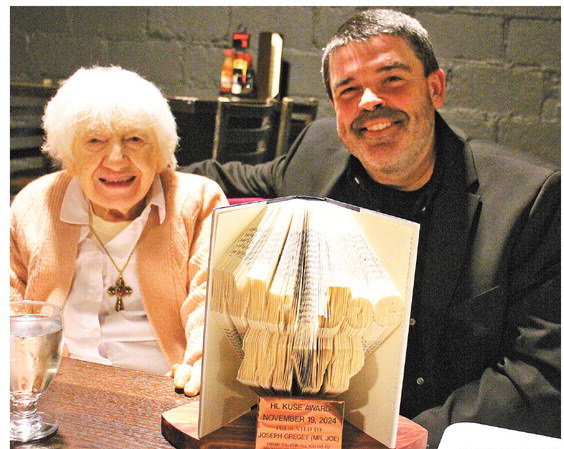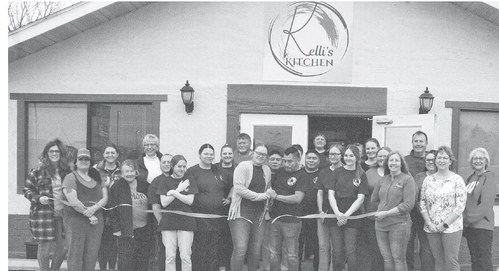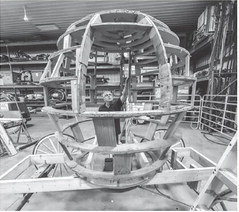Remembering September 11, 2001
This week, America paused to remember the sacrifice and tragedy of the September 11, 2001 terrorist attacks on the World Trade Center, Pentagon and United Airlines Flight 93.
Although it has been 23 years since the attacks resulting in the death of nearly 3,000 people — the single largest loss of life resulting from a foreign attack on American soil — for those who lived through that dark day, the memories are still as fresh as if they occurred yesterday.
In response to those attacks, American troops were deployed to Iraq and Afghanistan in a global “War on Terror.”
In the days and months that followed the 9/11 terrorist attacks, many Americans were moved to enlist in the Armed Forces. Faced with an attack from a hostile foreign enemy, they chose to answer the call and stand up to protect the United States, and its freedoms and ideals.
In the year after 9/11, more people enlisted in the military than in any year since. In the first full recruitment after the attacks, 181,510 Americans joined the ranks of active duty service and 72,908 enlisted in the reserves. There is a lasting connection between America’s military and the events of 9/11. The National September 11 Memorial and Museum records thousands of Veterans and active duty service members who visit the World Trade Center site each year, and reports hundreds of reenlistment and promotional ceremonies have taken place there over the years.
Altogether, more than 3.3 million military veterans have served in uniform and about one in five veterans today served on active duty after the terrorist attacks of September 11, 2001.
In 2011, veteran Brandon Brunner of Medford sat down with reporter Kevin O’Brien to share his memories of the day of the attack and the call to service. Brunner, along with other members of the National Guard unit stationed in Medford was deployed following the attacks.
Here are excerpts from that interview: When Brandon Brunner of Medford enlisted in the Army National Guard in 1997, a new war in the Middle East seemed like an unlikely prospect for the United States, which was enjoying an extended period of relative peace.
The Cold War had been over for almost 10 years at that point, and the threat of an international enemy almost seemed like a thing of the past. In November of that year, though, a Kuwaiti national, Ramzi Yousef, was found guilty of masterminding the 1993 World Trade Center bombing. It was a stark reminder that America still had enemies with a willingness to commit mass violence.
But it was still very much a pre-9/11 world.
Like many enlistees, Brunner joined the military for the financial assistance and other advantages it would give him as began his college career. He was 20 years old when he enlisted.
Brunner joined through the Medford Armory, becoming a combat engineer — someone who clears mine fields and builds bridges and roads for the infantry to move in.
Four years later, in the fall of 2001, Brunner watched the terrorist attacks unfold, like the rest of the nation, in “complete shock.” At the time, he was in law school at Hamline University in St. Paul, Minn.
“I don’t know if we had some classes cancelled or if I skipped a class, because I just sat in front of the TV all day,” he said.
But, as member of the armed forces, Brunner also saw the attacks as a call to action.
“Like anybody who would have been involved in the military at that time, you would have wanted to get involved in ... I guess the real word would be retribution for what happened,” he said.
Brunner’s experience in the military would eventually take on a whole new trajectory as result of 9/11, but it didn’t happen all at once.
“I wouldn’t say it really changed immediately after that,” he said. “It took a little time for that to set it.”
As a member of the National Guard, it would be another two years before Brunner and his fellow guardsmen were deployed to participate in what was called the “War on Terror.”
Around March of 2003, as the invasion of Iraq was just getting started, the 724 Engineering Battalion was mobilized to Fort McCoy to prepare for deployment in the new war zone. After a month there, Brunner and the rest of his unit got on a plane to Kuwait, where they would wait for another five weeks before going north into Iraq.
“To give people a good understanding of when we went into Iraq, it would have been when Bush landed on the aircraft carrier and said ‘Mission Accomplished,’” he said.
It took about three hours for the battalion to convoy to Tallil Air Base near the Iraqi city of Nasiriyah, southeast of Baghdad. He says the first sign they were entering Iraq was a big electrified fence at the border.
“That was the first thing you really noticed that, OK, now you’re in Iraq,” he said.
The battalion was based at the former Iraq air base, which had no basic living facilities, like toilets or washing machines. He said they had to burn their excrement and do their laundry in five-gallon pails for the first three months.
“You showered with a wash basin and a rag,” he said. They slept in 15-person tents with no air conditioning. Fortunately, though, Brunner said his battalion was in
See 9/11 REMEMBERED on page 8 Iraq during a relative lull in violence, after the initial invasion and march on Baghdad, and before the former Iraqi soldiers regrouped into a deadly insurgency.
“That first year was actually a statistically safe time to be there,” he said.
Not one of the 500 soldiers in Brunner’s battalion was killed or injured during their year in Iraq. There was once incident with one of their Humvees encountering an improvised explosive device (IED), but no one was hurt, he said. The 724th arrived back in Wisconsin in April of 2004 to a tremendous outpouring of support from people in the Badger State. Brunner said 9/11 and the Iraq War were really defining events for his generation, which was too young to remember the Vietnam War “Even the first Gulf War was such a blip on our radar screens, because we were probably in sixth or seventh grade,” he said. “It happened so quick; we were in and we were out.” Brunner noted that Medford Armory had not been deployed since the Korean War in the early 1950s.”
“It was an experience, of course, that I’ll never forget,” he said. “It sounds odd, but I’m happy that I’ve had the experience.
Though he is generally thankful for all the military and civilian contractors provided for him and his fellow soldiers, Brunner said some things did make him a “a little cynical.”
“When you heard reports coming back that the soldiers didn’t have the plates for their vests, we didn’t,” he said. “We had our flak jackets. They would stop a pistol, but everybody had AK-47s.”
When the ceramic plates did come, he said the soldiers often had to decide to put one covering their front or back, not both.
As the Iraq War dragged on after his deployment, Brunner said he could sense a slight shift in the public perception of the engagement.
“I would say the vast majority of the American citizens support their troops, and that’s great,” he said. “It’s probably not with the same gusto as it was.”
Brunner said Iraq’s greatest hurdle to success has been lack of infrastructure, — things American’s take for granted— like electricity, safe drinking water, and waste removal.
“You think about what it would be like here if we didn’t have electricity, we didn’t have running water, we didn’t have police,” he said. “That supports unrest amongst the people.”
Brunner is a corporate attorney for Weather Shield in Medford, a job he has had since April 2005.




